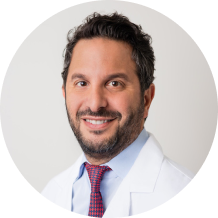SAVE 20% on your first doctor’s order order. Use code MM20 at cart
A Heart Ultrasound, also known as an Echocardiogram, cardiac ultrasound, or echo, is a non-invasive test used to visualize your heart in real-time. This diagnostic imaging procedure helps evaluate heart valve problems, heart muscle function, and blood flow. If you're experiencing symptoms like chest pain or shortness of breath, your doctor might recommend an echocardiogram to check for underlying heart disease. You can book a heart ultrasound test near you using LabFinder for convenience and accurate results.
An echocardiogram is recommended for individuals who:
The timing for an echocardiogram depends on individual symptoms and clinical needs. You may need to schedule one if you're experiencing irregular heartbeat, shortness of breath, or high blood pressure. You can also undergo a routine heart ultrasound during checkups or after procedures like bypass or valve replacement.
Knowing what to expect during an echocardiogram helps reduce stress:
This test helps identify several cardiovascular conditions, such as:
Heart ultrasounds are considered extremely safe. They are non-invasive and do not use radiation. Minor discomfort from the pressure of the probe is possible, but no serious risks are associated with this test. It's safe for pregnant women and children.
Preparing for a heart ultrasound is simple. To get the most accurate results:
If your doctor needs more information beyond an echocardiogram, they may suggest:
Echocardiograms are highly accurate for diagnosing conditions such as valve disease, heart muscle disorders, and congenital abnormalities. For patients asking, “How reliable is a heart ultrasound for shortness of breath or chest pain?” — it’s often the first test used in ER and outpatient settings due to its speed, safety, and detailed results.
If your results raise concerns, follow these steps:
Use LabFinder to book a heart ultrasound near you quickly and conveniently. Compare prices, check insurance coverage, and find nearby diagnostic centers that offer reliable heart imaging. Our partner clinics offer same-day and next-day appointments for cardiac ultrasounds.
Whether you're experiencing symptoms or monitoring an existing condition, a Heart Ultrasound is one of the most important tools for managing heart health. Book your echocardiogram appointment online today and take proactive steps toward protecting your heart.
Book on LabFinder: find a lab today on our lab finder and request a test doctor guided.

The information on this page and throughout the LabFinder website and mobile app is for general informational purposes only. It is not intended to serve as medical advice, diagnosis, or treatment. For personalized medical advice or specific health concerns, please consult your healthcare provider directly.
A heart ultrasound—also called an echocardiogram, echo test, or cardiac ultrasound—is a non-invasive test that uses high-frequency sound waves to generate detailed images of the heart’s structures, including heart muscles, valves, and nearby blood vessels such as the aorta and arteries. Doctors use this diagnostic cardiac ultrasound to evaluate heart size, shape, wall thickness, and valve function. An echo test can identify leaking or narrowed valves, blood clots in heart chambers, infections, tumors, or abnormal holes between chambers. It is also useful for detecting congenital defects in fetuses during pregnancy. The heart ultrasound test is painless, safe, and offers more detailed results than traditional X-rays—making it a valuable tool for diagnosing heart issues, especially after a heart attack. You can book an echocardiogram near you using LabFinder quickly and easily.
The average echocardiogram procedure time is about 45 minutes to 1 hour. The total time may vary depending on the patient’s condition or whether more advanced techniques like Doppler or stress echocardiograms are used.
The echocardiogram is a safe, non-invasive heart test with minimal to no risks. You may experience slight pressure from the transducer or mild discomfort from lying on your side. However, serious complications are extremely rare. If you have specific medical concerns or limitations, discuss them with your doctor before the procedure.
No fasting or special preparation is required for a standard transthoracic echocardiogram. Simply bring your LabFinder Order and Insurance Card to your appointment. Wear comfortable clothing and follow any instructions your provider may give if you're undergoing a special type of echo test.
Your heart ultrasound results will be available within 3–5 business days in your LabFinder portal. Log in with your credentials to access the report. Based on the findings, your healthcare provider will guide you on the next steps, which may include additional testing or starting a treatment plan.
Talk to your doctor about your condition and the type of echo test recommended. Good questions to ask include: Why do I need this specific echo test? How should I prepare? Will I need any follow-up testing? You can also use LabFinder to locate an echocardiogram clinic near you and explore available options based on your location and insurance coverage.
Booking a Heart Ultrasound (Echocardiogram) is easy using LabFinder. Just choose your location and enter your insurance information to find the closest Heart Ultrasound (Echocardiogram) near you.
To make a same-day appointment for a Heart Ultrasound (Echocardiogram), just choose your location and your insurance information to find the closest Heart Ultrasound (Echocardiogram) location near you. If there's availability for a same-day appointment at a nearby lab location, then you will be able to book it easily through LabFinder.
LabFinder allows you to easily schedule a Heart Ultrasound (Echocardiogram). You can search by location and insurance to easily book a Heart Ultrasound (Echocardiogram) near you.
LabFinder allows you to easily make an appointment for a Heart Ultrasound (Echocardiogram) online. To make an appointment for a Heart Ultrasound (Echocardiogram) online, just choose your location and your insurance information to find the closest Heart Ultrasound (Echocardiogram) near you.
Yes, you can get a Heart Ultrasound (Echocardiogram) without insurance. LabFinder allows you to search and select "Self-Pay" when booking a Heart Ultrasound (Echocardiogram). While pricing for the test may not be immediately available, please check by calling the lab company directly for pricing.